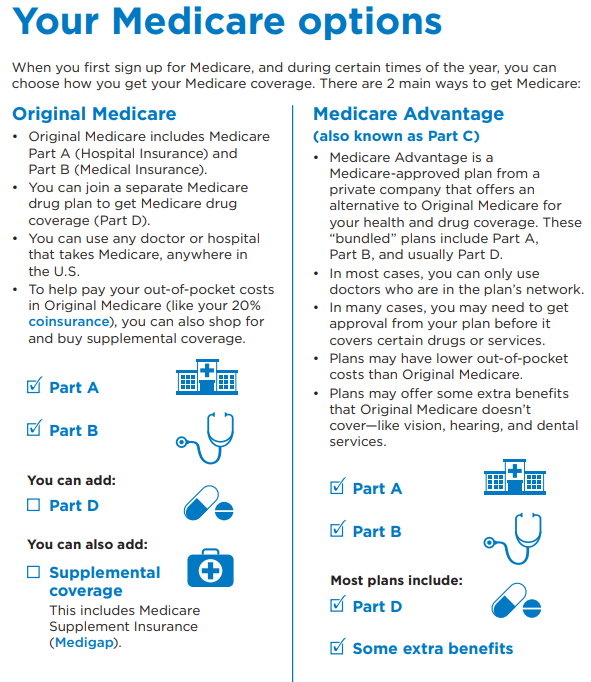- Licensed & Approved Agency in Multiple States
- (888) 901-4870
- (404) 996-0045

I Received An Annual Notice of Change from My Part D Plan. What Now?
September 12, 2016
2017 Medicare Changes You Need to Know About
January 26, 2017Enrollment into Medicare is automatic for some but not for others.
If you want to avoid Medicare late enrollment penalties, it’s usually a good idea to enroll in Medicare as soon as you are eligible. This is especially true if either or both of the following circumstances apply:
- You are retired or disabled, or otherwise not working
- You don’t have group/retiree health insurance via an employer plan
But before you delay enrollment, understand that there is a downside for doing so- and that downside is permanent. That is, if you fail to enroll in Medicare when you first become eligible- during your initial enrollment period.
When is your initial enrollment period?
For the vast majority of us, our initial enrollment period commences three months prior to the month in which we turn 65, includes the month in which we turn age 65, and extends for three months beyond that, for a total of seven months.
If you don’t enroll during your initial enrollment period and you don’t have other creditable coverage, you will have to pay a penalty in the form of higher premiums when you do, in fact, enroll.
If you miss your initial employment period into Medicare Parts A and B, then be ready to act during the General Enrollment Period, which runs from January 1 through March 31 each year. Coverage begins July 1.
Note: the Annual Enrollment Period extends from October 15th to December 7th of each year. This is when everyone on Medicare can enroll in, change or drop a Medicare Advantage plan, as well as a Medicare Part D plan. If you’re enrolled and want to make changes to your enrollment or to your Medicare Advantage or Medicare Part D plans, you must do so during the Annual Enrollment Period, unless you have a special enrollment period. Regarding Medigap plans, also known as Medicare Supplement plans, you can apply 365 days a year. However, if you’re just turning 65 or enrolling in Part B for the first time, you will have a 6 month period to buy a Medigap plan, with no health questions asked.
How Are Medicare Late enrollment Penalties Calculated?
Your penalty depends on which part of Medicare you are enrolling late in, and how many months or years have elapsed since you first became eligible.
For Medicare Part A (Hospital Insurance), you will have to pay a late penalty of 10 percent of your Part A premium for twice the number of years you failed to enroll in Part A after becoming eligible.
For Medicare Part B (Medical Insurance), which pays physician’s fees, lab fees and the costs of durable medical equipment, your monthly Part B premium will go up 10 percent for every 12-month period in which you qualified for Part B coverage but did not enroll. This penalty is forever – as long as you live and you’re enrolled in Part B, you will have to pay the additional premium penalty. However, an exception applies if you maintained credible coverage at your job or your spouse’s job when you were first eligible to enroll in Medicare Part B.
For Medicare Part D (Prescription Insurance), you will also have to pay a penalty if you fail to enroll within three months after your Medicare Part A or Part B becomes effective.
The Part D penalty is calculated as follows: 1 percent of the national average premium- times the number of months you could’ve had a Part D plan but you didn’t, rounded to the nearest dime. Again, this penalty is permanent, too.
Special Enrollment Periods
If you initially decline Medicare because you are enrolled in an employer plan, and now will be losing your coverage, you will qualify for a special enrollment period. This period lasts for eight full months after your former coverage ends. That is one of many possible special enrollment scenarios. It’s best to speak with an agent if you feel you qualify.
How To Avoid Medicare Late Enrollment Penalties
The best way to avoid paying needless Medicare late enrollment penalties is to be informed. Understand your initial enrollment period, for example, and when it ends.
Unless you have employer/retiree coverage that you like and can keep, enroll in Medicare Part A and B as soon as you are eligible. That’s 3 months before the month you turn 65. If you’re already collecting Social Security or Railroad Retirement, you may be automatically enrolled into Medicare. Then, consider buying a Medicare Supplement plan to pay the 20%, plus deductibles that Medicare does not pay.
Most people want prescription drug coverage, as well. You can do this by enrolling in Medicare Part D plan or via a Medicare Advantage (Part C) plan that includes prescription drugs. The right plan for you depends on your location, medications and the pharmacy that you use. We would be happy to walk you through each option and help you explore your alternatives.
We also take a look at your upcoming deadlines and help you know what they are, so you won’t get blindsided by a Medicare deadline.
Call me from anywhere in the country, at 888-901-4870, or simply click here to send me a message. Thank you!




